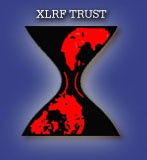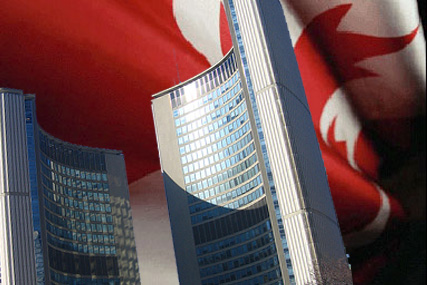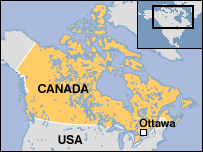 |
||
& believes firmly in its 4E Philosophy -
& pursues the same each day by building GLOBAL CITIZENS
|
|||||||||||||||||||||||||
|
Canada is the second largest country in the world after Russia. Its population is only about one-fifth of Russia's however. Nearly 90% of Canadians live within 200 km of the border with the United States, which means that Canada contains vast expanses of wilderness to the north. The relationship to its powerful neighbour is a defining factor for Canada. The US and Canada have the world's largest trading relationship. The North American Free Trade Agreement, involving Canada, the US and Mexico, has brought a trade boom for Canada. But thorny issues abound. American moves, which impact on Canadian exports, in the form of tariffs on Canadian timber and increased subsidies for US farmers, have created particular tension. Canada is also worried about pollution from US factories near the border, and about the possible impact on the environment of the exploitation of oil deposits in Alaska. Toronto: The thriving metropolis is Canada's commercial hub. Canada pursues a foreign policy that is distinct from that of the US. The country has committed troops to the American-led war on terror, but does not back the US trade embargo on Cuba. Canada did not send troops to join the US-led war in Iraq. After the 11 September 2001 attacks in the US, the challenge of securing the 9,000-km Canada-US border from possible terrorist infiltration prompted both countries to look at ways of sharing information. Immigration has helped to make Canada one of the world's richest nations, and the country is largely free of racial tension. Many recent newcomers hail from Asia. Canada's indigenous peoples make up less than two per cent of the population. The way in which provincial governments share land and natural resources with native groups is an ongoing issue. Separatist aspirations in the predominantly French-speaking province of Quebec are a major domestic issue. A referendum in 1995 saw advocates of an independent Quebec only narrowly defeated. Subsequent opinion polls indicated a fall in support for independence and the pro-independence Parti Quebecois was defeated in 2003's provincial election. The concept of nationhood for Quebec resurfaced in late 2006 when parliament agreed that the Quebecois should be considered a "nation" within Canada. The move was largely symbolic, having no constitutional or legal grounding. Canada has been asserting its sovereignty in the Arctic with growing vigour and has become embroiled in territorial spats with the US and Denmark. At stake is the possible bounty from previously-untapped reserves of oil and gas. |
|||||||||||||||||||||||||
|
FACTS
|
|||||||||||||||||||||||||
|
|||||||||||||||||||||||||
| In Canada, education is the responsibility of the provinces, not the federal
government. All degree programs in business or management must meet the quality-control criteria of
their respective provincial governments. The level of quality across Canada is consistently high.
There is no separate accreditation body for university degree programs in business or most other
disciplines. Canada is consistently ranked highly as a great place to live and work. Key benefits cited in these listings include the following:
|
|||||||||||||||||||||||||
|
|||||||||||||||||||||||||



